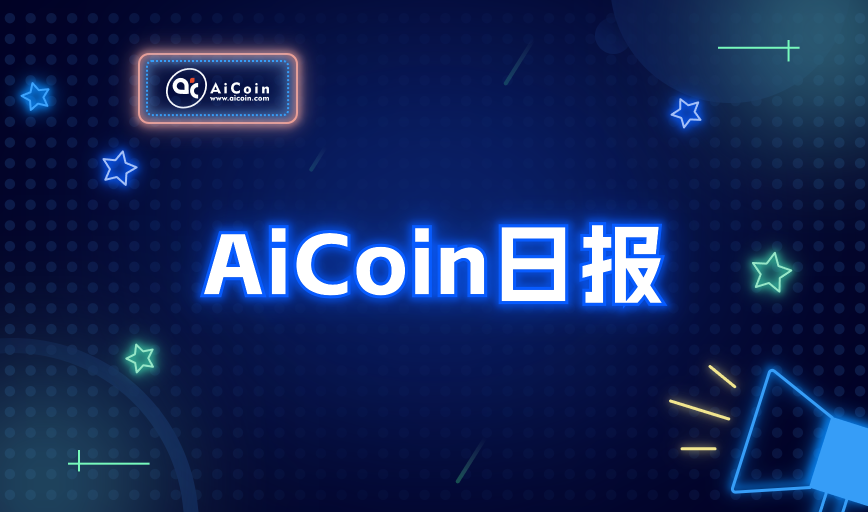Original Author: James Wo, Founder and CEO of DFG
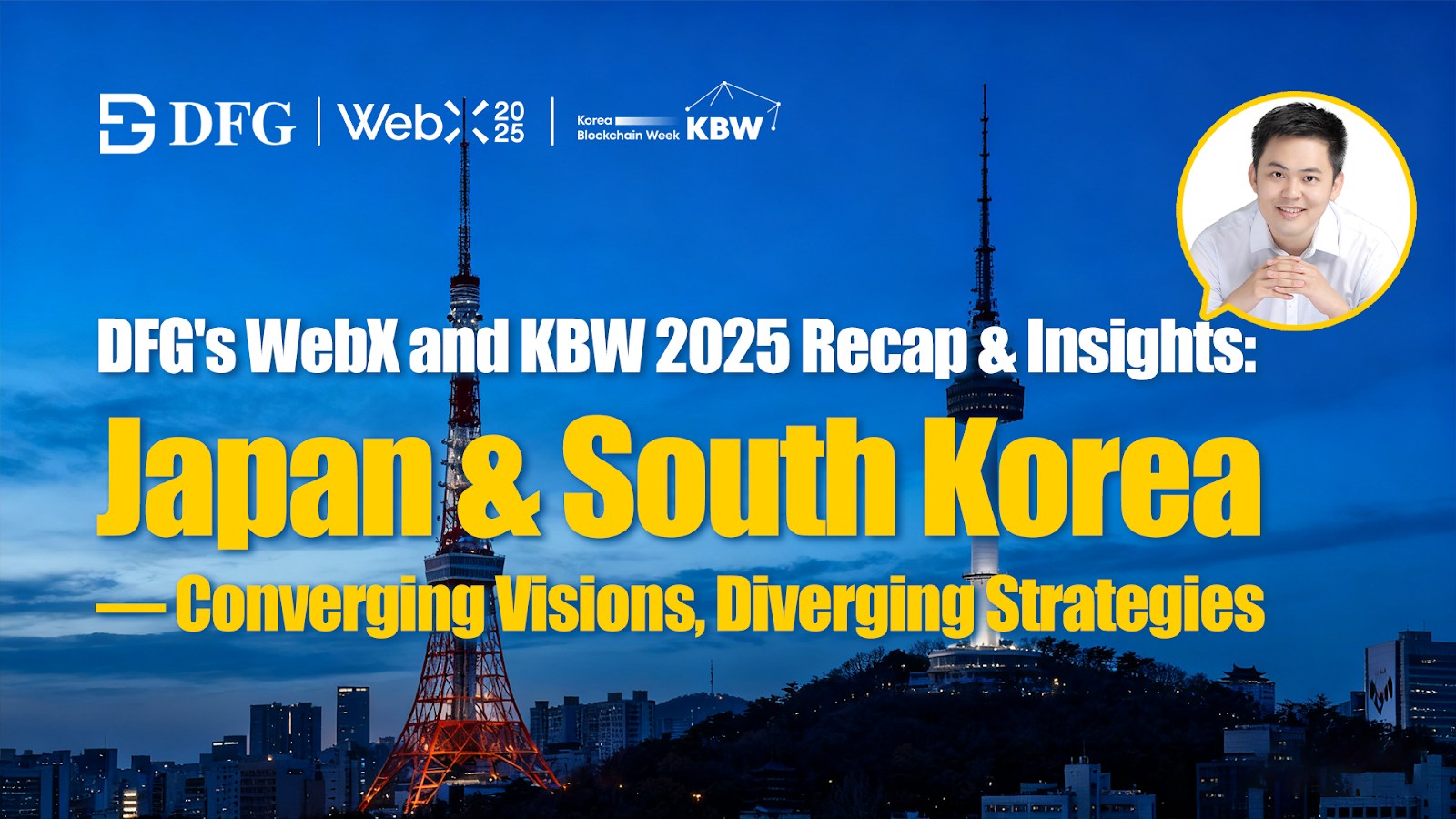
In the past few months, the Asian digital asset ecosystem has experienced a glorious period, marked by two of the most influential events—the WebX 2025 in Tokyo and the Korea Blockchain Week 2025 in Seoul. Both conferences attracted widespread participation from global investors, developers, regulators, and innovators, signifying the increasing maturity and influence of the Asian market in shaping the next wave of Web3. As a sponsor of WebX and the host of our summit during KBW, DFG had the opportunity to engage in in-depth discussions with local founders, policy leaders, and ecosystem partners. Through these dialogues, we observed fascinating similarities and stark contrasts between Japan and South Korea, two of the most vibrant and forward-looking crypto economies in Asia.
Japan vs. South Korea: A Comparison and Fusion of Web3
AI and Blockchain
At WebX 2025 in Tokyo and KBW 2025 in Seoul, the integration of AI and blockchain was not just a theme but a strategic frontier shaping the next wave of innovation. However, the two markets view this issue from distinctly different angles, reflecting their respective national tech genes. Discussions in Japan revolved around pragmatic and scalable integration: how AI can enhance blockchain infrastructure, achieve compliance automation, and simplify user onboarding for DeFi and enterprise-level applications. This direction aligns closely with several companies in DFG's portfolio, such as Render Network and Gensyn, which are building at the intersection of AI and decentralized computing. The tone of these companies is thoughtful and orderly, rooted in Japan's culture of precision, data integrity, and ethical deployment. Meanwhile, in South Korea, this vibrancy is undoubtedly experimental. Builders and funds openly explore AI-driven DeFi strategies, algorithmic trading agents, and quantum-resistant protocols. AI is portrayed not just as an auxiliary tool but as a competitive advantage in an increasingly fragmented market. The contrast is evident: Japan views AI as a foundational infrastructure for enhancing blockchain usability and governance, while South Korea sees AI as a catalyst for improving market performance and global competitiveness. Japan's AI blockchain landscape tends to favor long-term, infrastructure-focused investments. In contrast, South Korea provides fertile ground for high-speed, high-return experiments.
Stablecoins and RWA
Stablecoins and RWA dominated both events, but the contrast in direction was apparent. At WebX, Japan's approach was influenced by institutional discipline and financial pragmatism. The focus of discussions was on how tokenization can lower financing costs and democratize access to corporate debt and SME financing—such as Ant Group tokenizing $8.4 billion worth of Chinese energy assets on its blockchain to reduce costs and accelerate financing. Japanese regulators and banks are methodically trialing yen-backed stablecoins, emphasizing transparent audits, interbank interoperability, and regulatory compliance. As early investors in Circle, we look forward to seeing the evolution and broader application of yen-backed stablecoins in Japan's financial ecosystem. However, in South Korea, the narrative is faster-paced, smoother, and more entrepreneurial. The KBW conference explored tokenization of real estate, transportation, and supply chain assets, with an eye on secondary market trading and cross-border liquidity. Similarly, our portfolio company Plume Network is creating a secure and compliant environment for the use of these assets in on-chain financial activities by tokenizing real estate, credit, and commodities, thus advancing this vision. South Korea is exploring scalable ecosystems to enable access to global retail channels and leveraging crypto-friendly tax rules to attract liquidity. By 2025, as South Korean investors increasingly turn to decentralized trading platforms that offer frictionless onboarding, self-custody, and faster token listings, this environment has also significantly boosted the adoption rate of perp DEXs. If Japan's model prioritizes trust, compliance, and institutional scale, South Korea's model emphasizes accessibility, experimentation, and speed. This duality is crucial: Japan is becoming a compliant gateway for institutional-grade digital assets in Asia, while the South Korean market serves as a sandbox for rapid retail adoption and cutting-edge innovation. This dynamic tension drives complementary growth in the region.
Regulatory and Government Stance
The regulatory differences between Japan and South Korea continue to define their competitive positioning in the global cryptocurrency arena. Japan pursues a rigorous, rules-based regime aimed at fostering "responsible innovation" and institutional confidence. WebX highlighted the close collaboration between Japan's Financial Services Agency (FSA) and the private sector, emphasizing Japan's forward-looking yet conservative strategy, which centers on the digital yen pilot project, a clear licensing system, and cross-border regulatory coordination with the EU and Hong Kong. This framework provides investors with predictability and long-term security. On the other hand, South Korea thrives on regulatory flexibility. Discussions at KBW revealed how South Korea's delay in imposing cryptocurrency taxes and relatively lenient regulations have stimulated the development of one of the world's most active trading ecosystems. Policymakers are currently exploring how to balance innovation with regulation, especially in dialogue with their U.S. counterparts on strengthening cross-border compliance. Japan's policy clarity is well-suited for infrastructure and institutional investment, while South Korea's dynamic environment favors agility, growth hacking, and consumer-facing innovation. This contrast highlights the evolving dual narrative in Asia: Japan builds a track of trust, while South Korea fuels market dynamics.
DFG Activities
At WebX 2025
As a gold sponsor of WebX 2025, DFG had the opportunity to share a booth with Tevau and engage with numerous local participants. Through speeches and review activities, we gained deeper insights into the landscape of Web3 in Japan, particularly how mature Web2 companies are evolving and transitioning into the Web3 ecosystem. 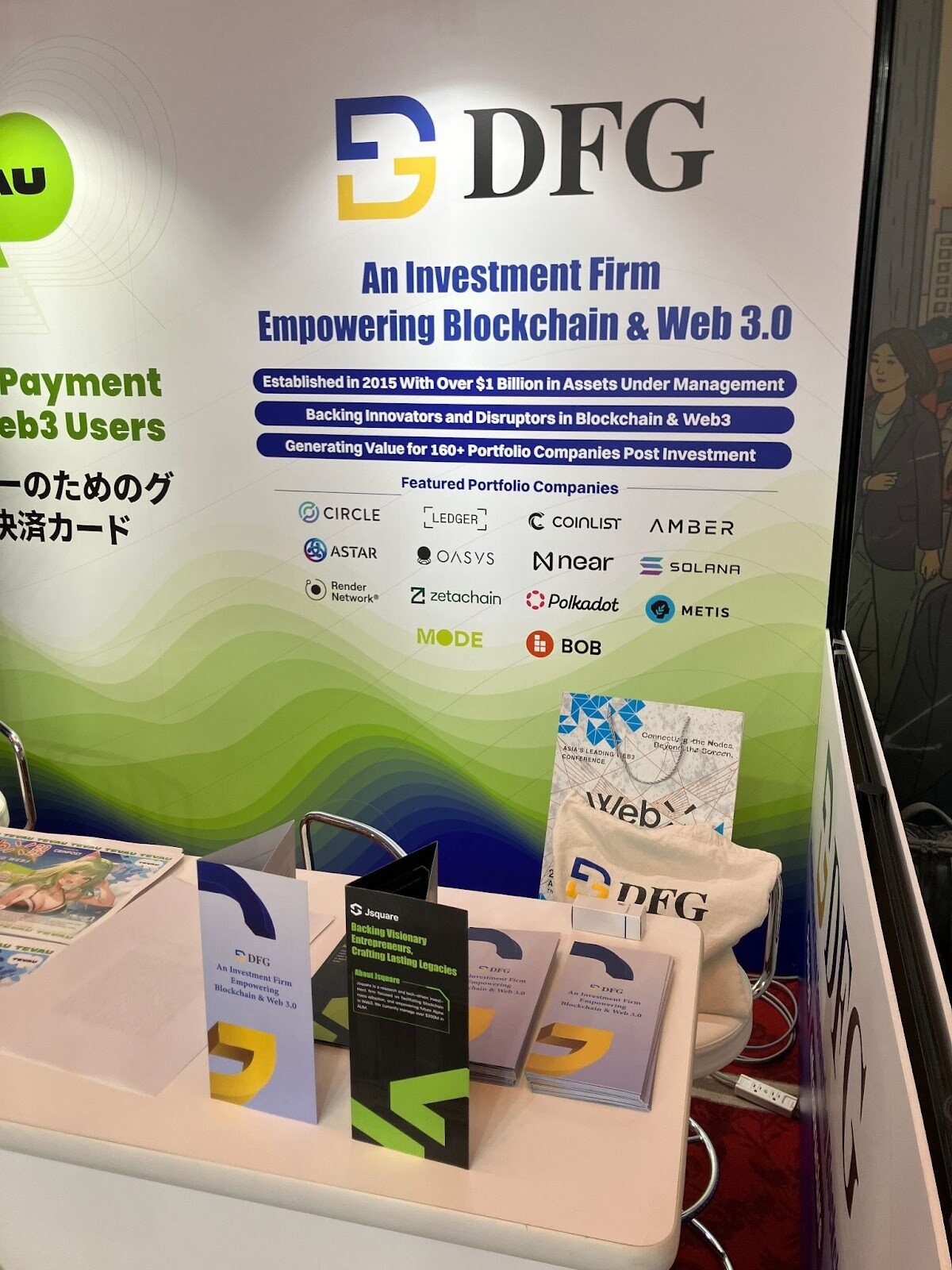
We were pleased to participate in a roundtable discussion at WebX, sharing our evolving investment philosophy. Recently, DFG has shifted its focus from quantity to quality, supporting innovative infrastructure and visionary teams rather than those merely replicating existing models. 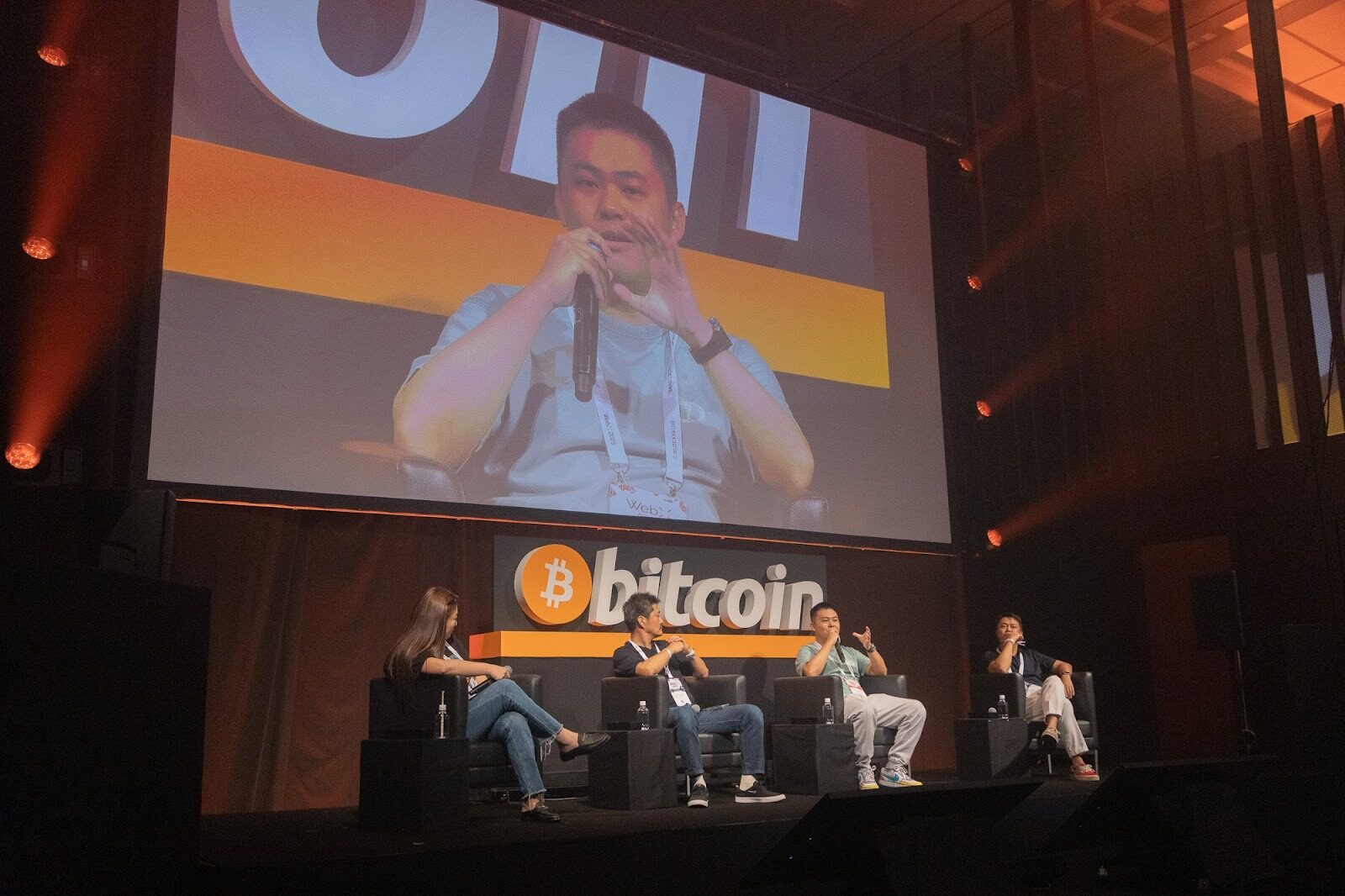
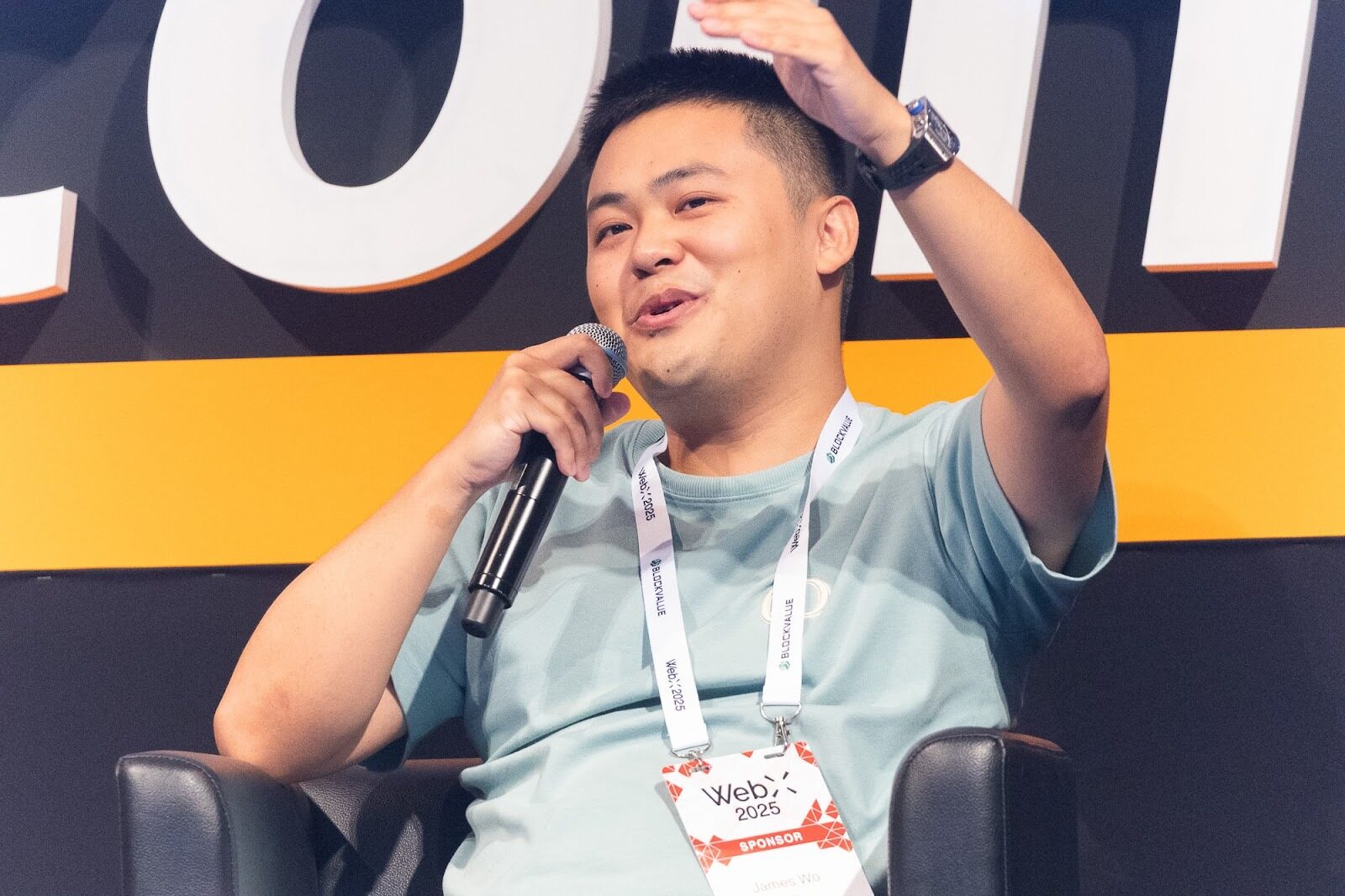 I also participated in a roundtable discussion at VC Connect, exploring how institutions can enter Web3 through tokenization, compliance, and practical applications. DFG is committed to supporting genuine innovation rather than blindly following trends, paving the way for institutional adoption.
I also participated in a roundtable discussion at VC Connect, exploring how institutions can enter Web3 through tokenization, compliance, and practical applications. DFG is committed to supporting genuine innovation rather than blindly following trends, paving the way for institutional adoption. 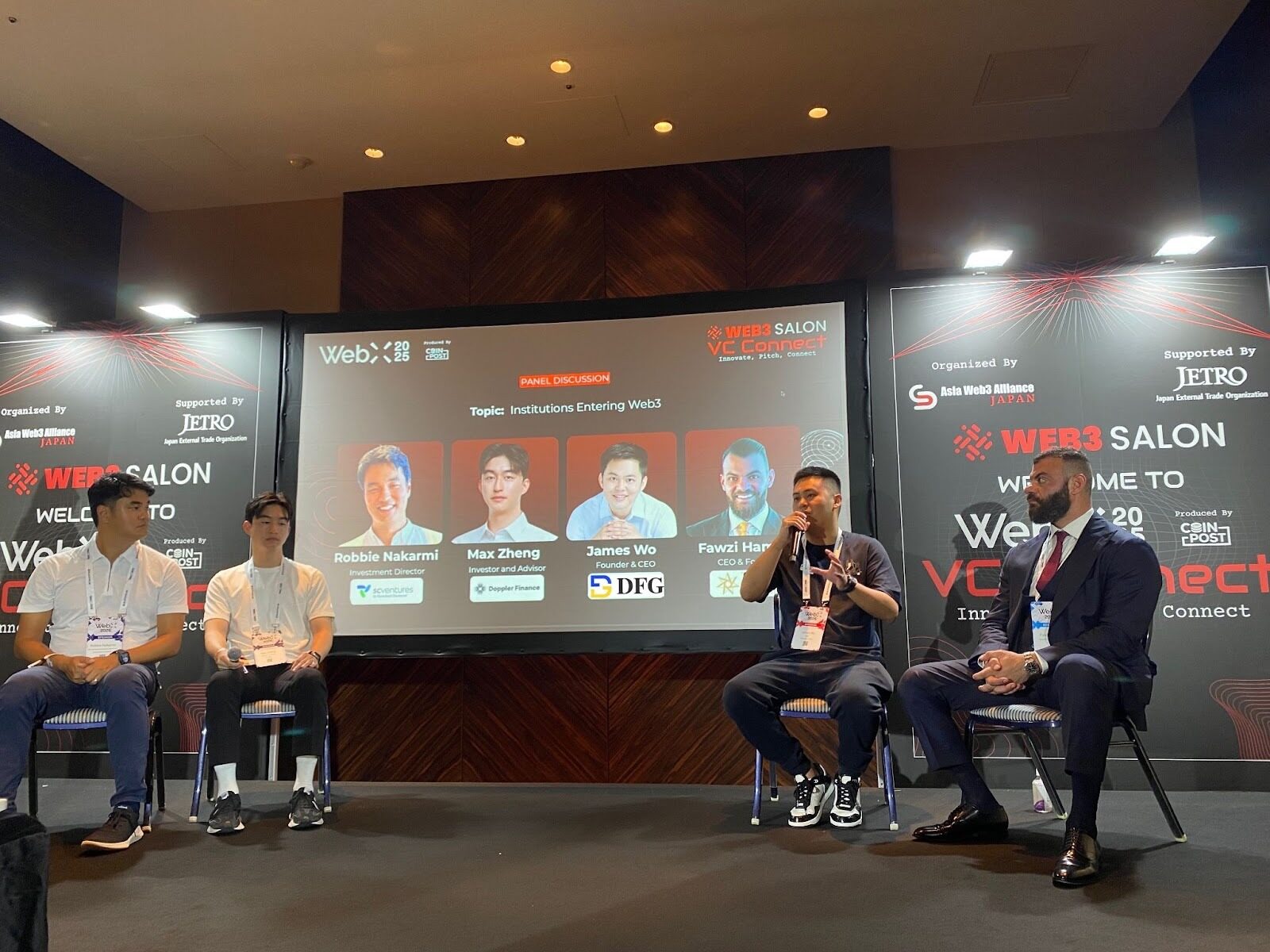
Our research director Geng Kai participated in the pitch session at VC Connect, engaging directly with emerging Web3 startups and innovators in Japan. This pitch session provided a platform for the next generation of builders shaping Japan's blockchain ecosystem to showcase their ideas. 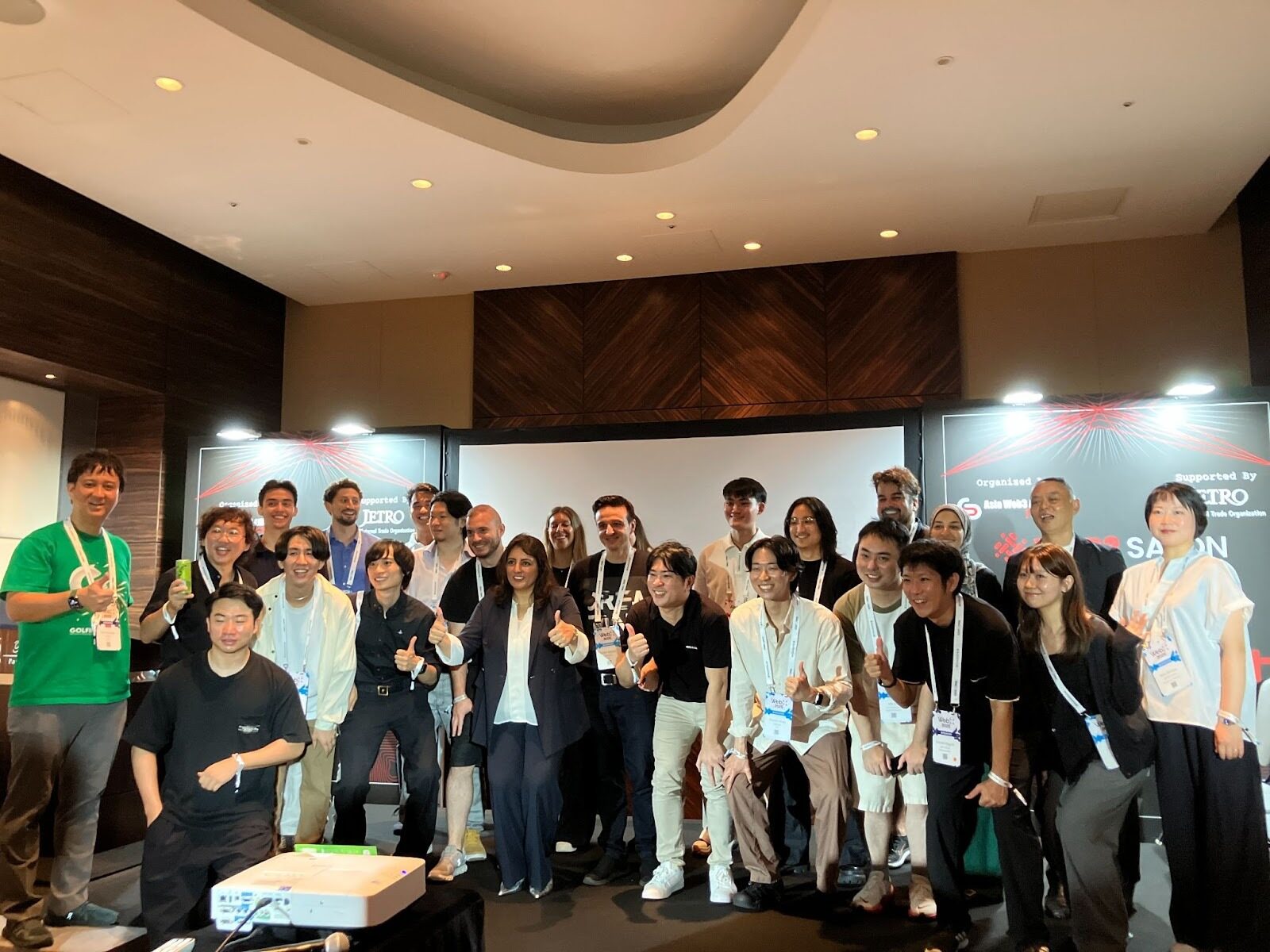
At KBW 2025
On September 22, during the 2025 Korea Blockchain Week, DFG co-hosted a one-day summit "Bridge the Block Korea Day" with Jsquare in Seongdong. This event brought together leaders from the entire Web3 ecosystem, featuring insightful speeches from prominent speakers, including Korean lawmakers, high-quality startup pitches, and interactive booths, all contributing to a vibrant and successful day of exchange and collaboration. 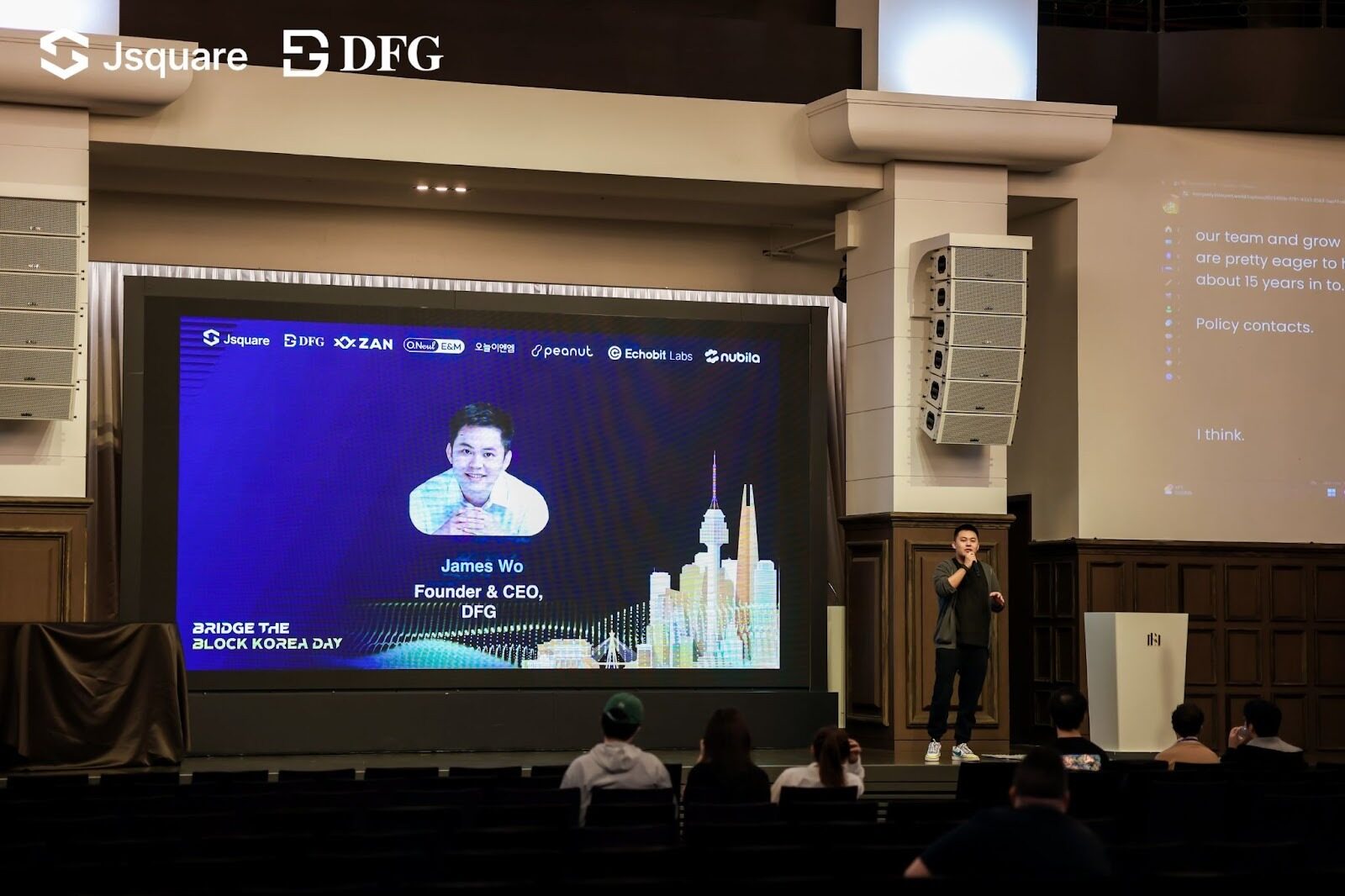
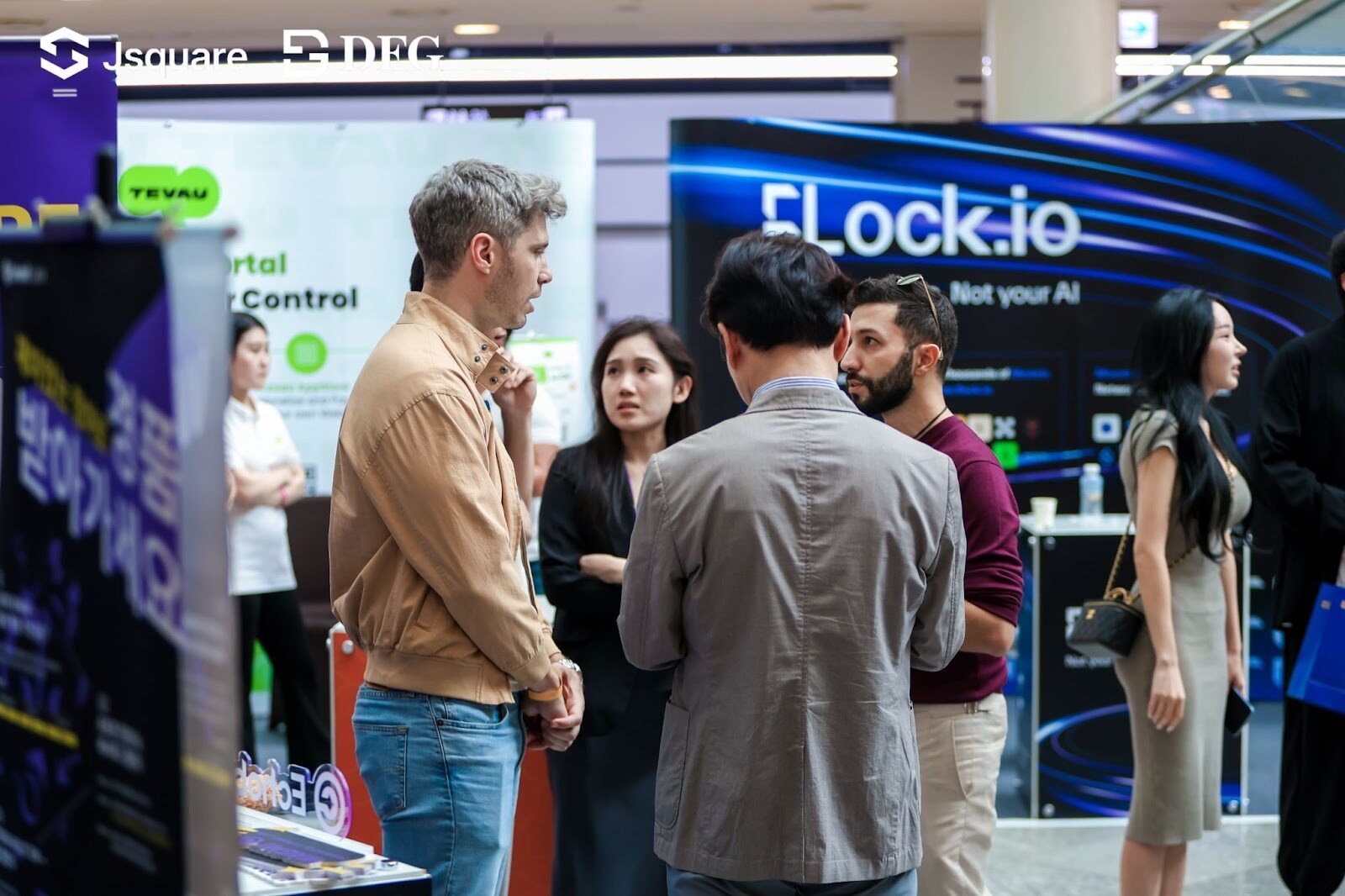
On the main stage, speakers shared their views on DeFi, AI, and DePIN, as well as the market dynamics and macro environment shaping the Korean blockchain ecosystem and its differences from global markets. Korean lawmaker Kim Hyun-jung, as a guest speaker, provided valuable insights into South Korea's evolving regulatory and policy landscape for digital assets. 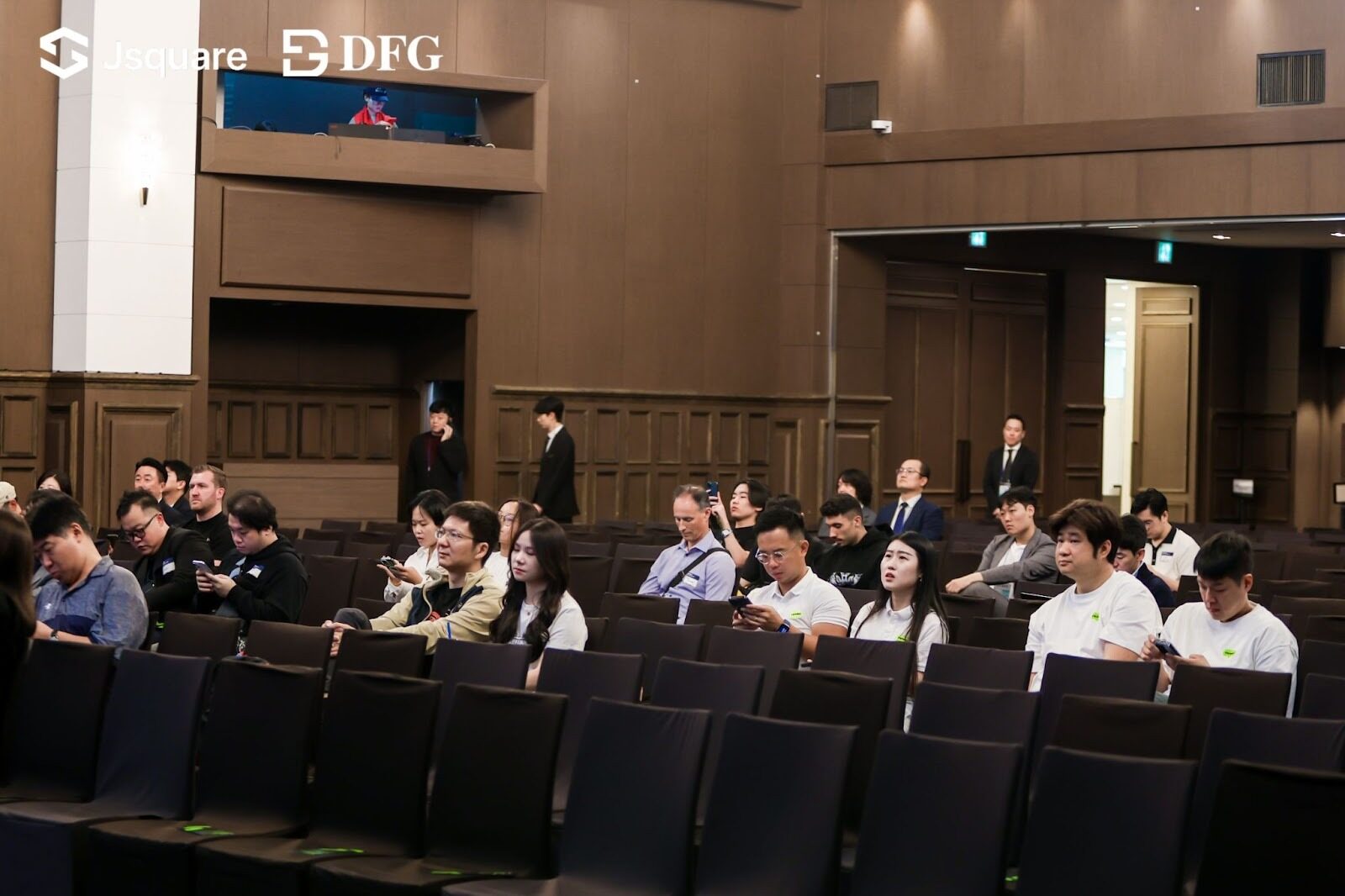
The VC Pitch Session, co-hosted with AKINDO, gathered 10 emerging startups from different ecosystems. Six judges from leading venture capital firms and accelerators evaluated the projects, posed sharp questions, and ultimately selected the top three—UnifAI, BitGPT, and Avinasi. 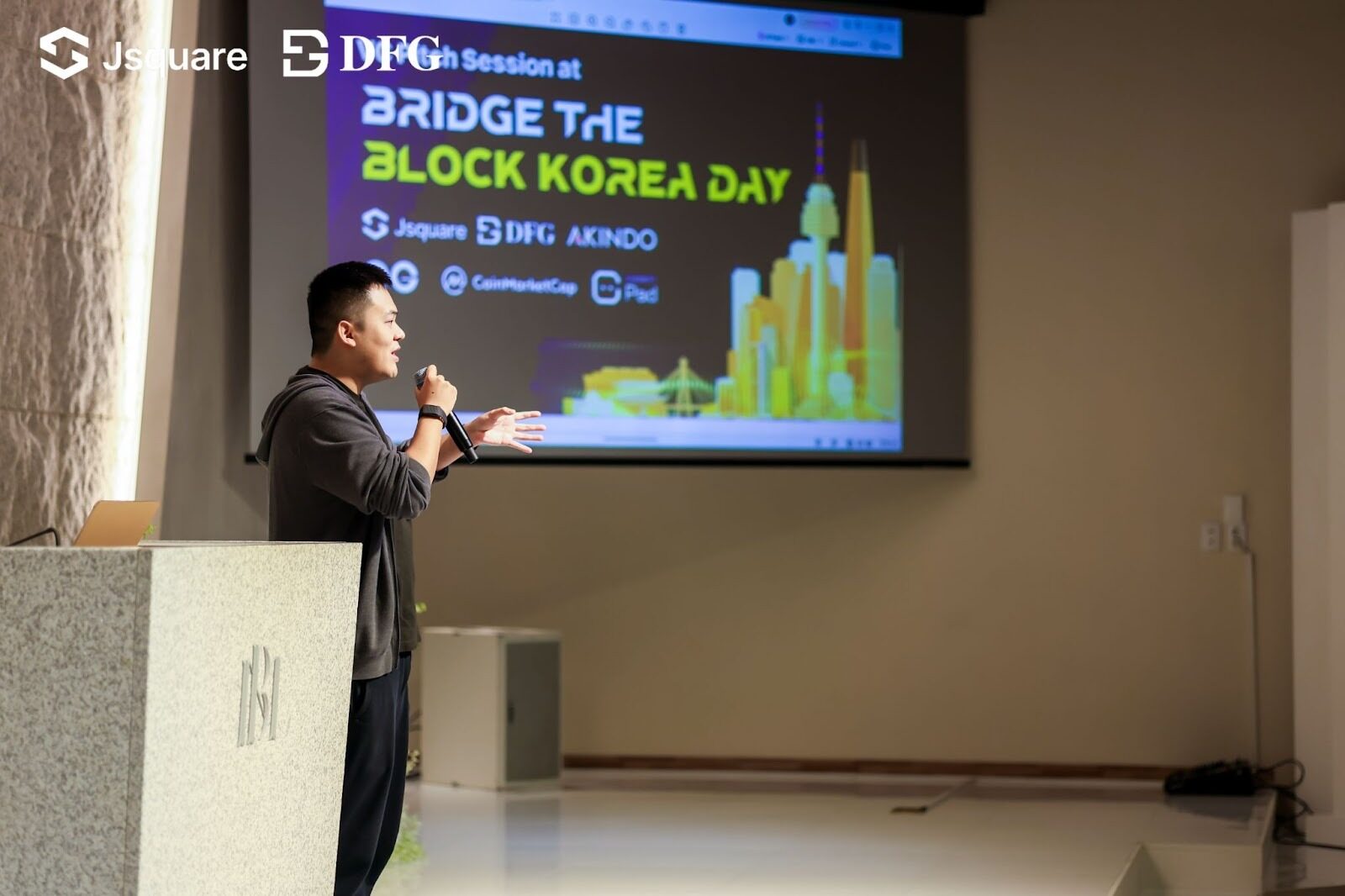
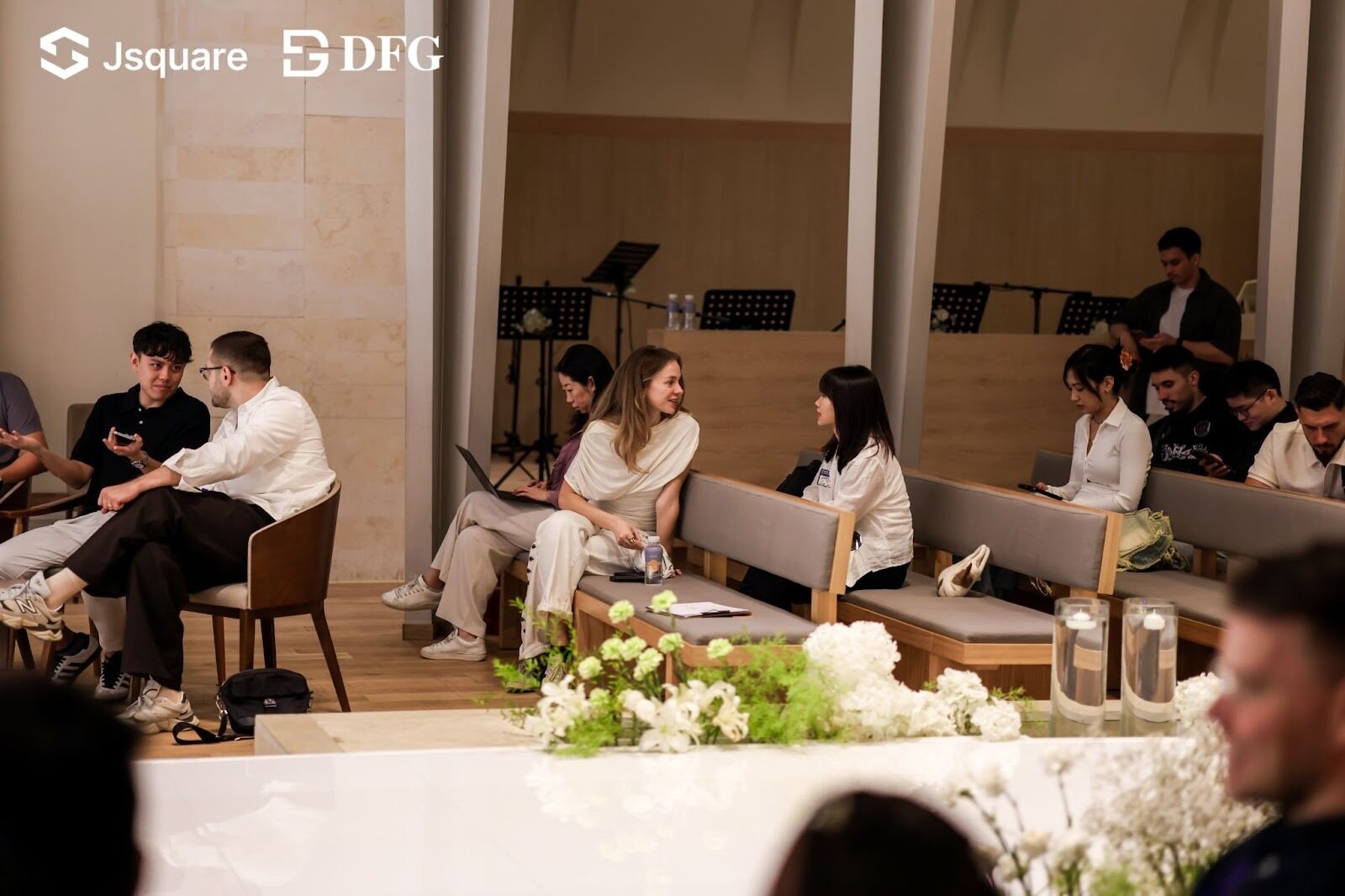
Conclusion
Both Japan and South Korea are among the most vibrant and forward-looking regions in Asia for Web3. From Japan's rigorous regulatory-driven innovation to South Korea's rapidly evolving experimental culture, each market showcases unique strengths that collectively shape the next wave of blockchain growth in the region. The vitality and creativity we witnessed at WebX and KBW 2025 reaffirm our belief that Asia will continue to lead the global transition to a decentralized digital economy. At DFG, we are excited to continue supporting the founders, projects, and partners driving this momentum and look forward to returning to Tokyo and Seoul soon to deepen our engagement with these thriving communities.
About DFG
Digital Finance Group (DFG) is a global leading Web3 investment and venture capital firm, established in 2015. DFG manages assets exceeding $1 billion, with investments spanning various sectors within the blockchain ecosystem. Our portfolio includes over 100 pioneering projects such as Circle, Ledger, Coinlist, Near, Solana, Render Network, and ZetaChain.
At DFG, we are committed to creating value for our portfolio companies through market research, strategic consulting, and leveraging our extensive resources globally. We are actively collaborating with the most transformative and promising blockchain and Web 3.0 projects that are poised to revolutionize the industry.
DFG Website: https://dfg.group
DFG Twitter: @DFG__Official
DFG LinkedIn: DFG
免责声明:本文章仅代表作者个人观点,不代表本平台的立场和观点。本文章仅供信息分享,不构成对任何人的任何投资建议。用户与作者之间的任何争议,与本平台无关。如网页中刊载的文章或图片涉及侵权,请提供相关的权利证明和身份证明发送邮件到support@aicoin.com,本平台相关工作人员将会进行核查。




